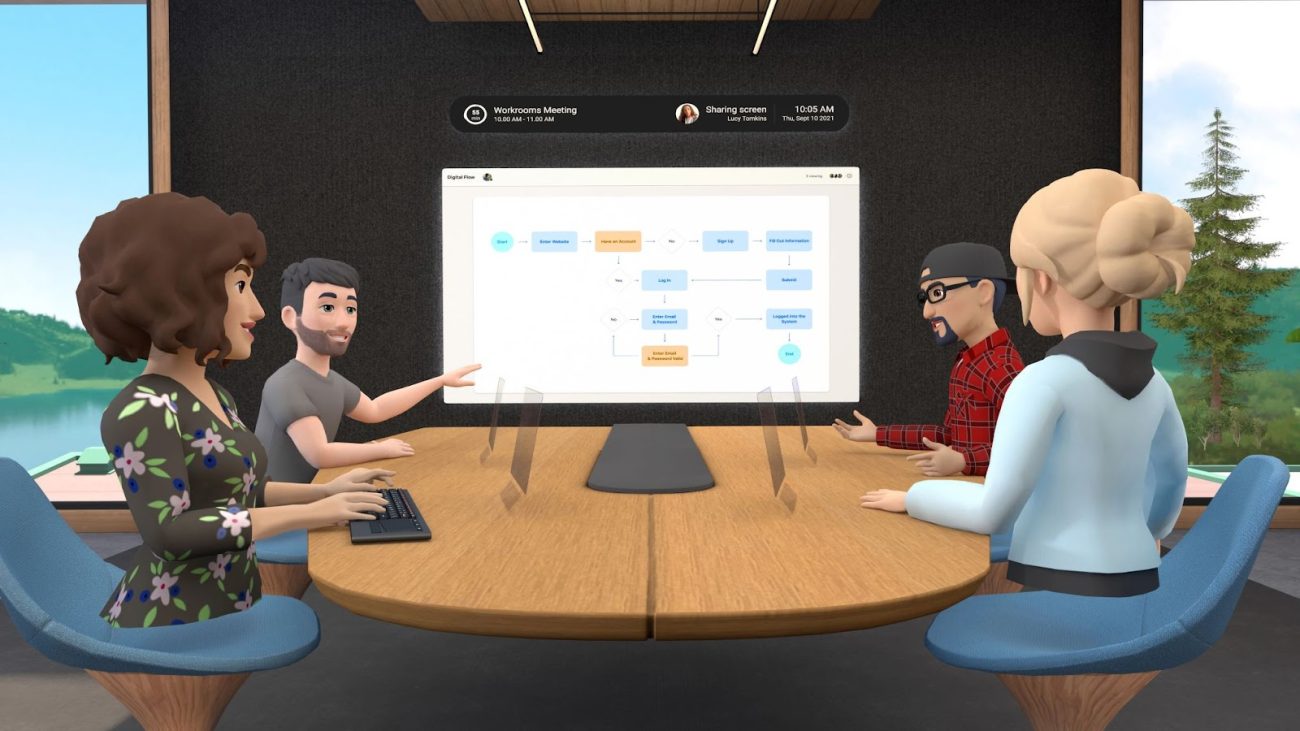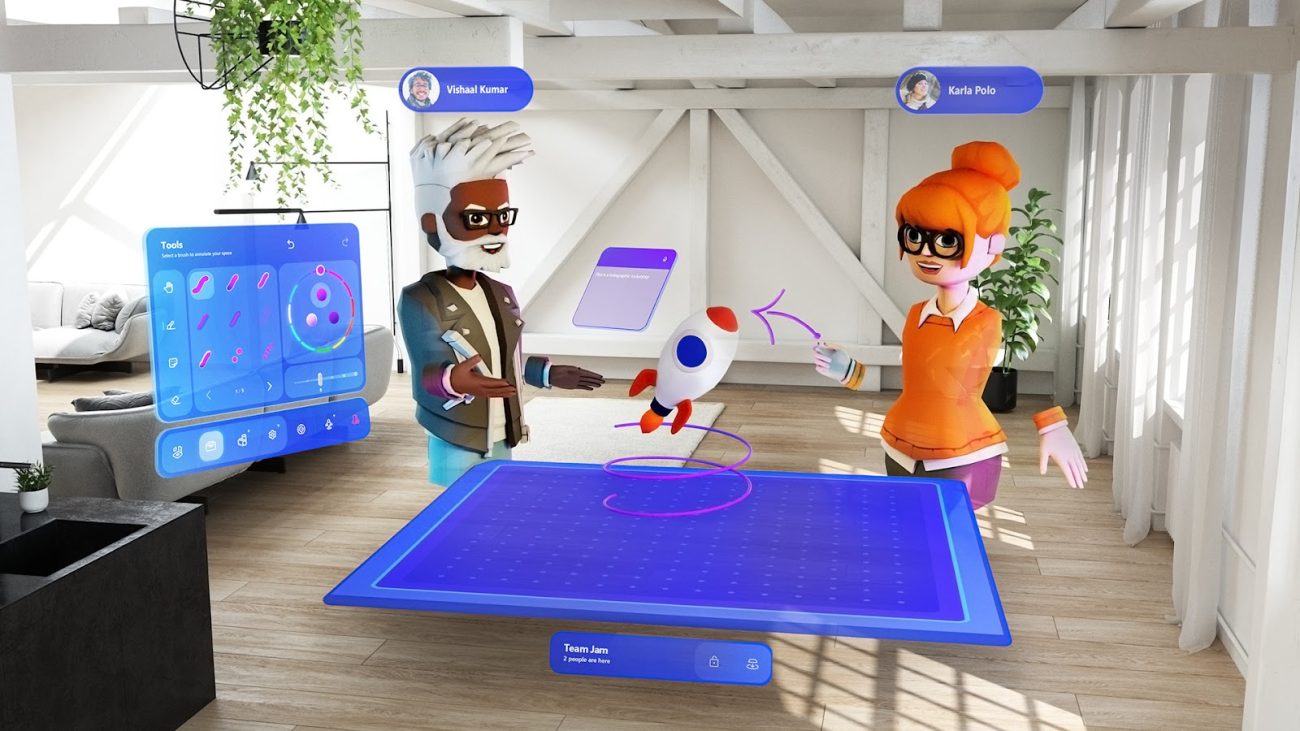|
Listen to this story
|
When ‘Video killed the radio star’ by the Buggles was released in 1979, the song made sense because it talked about the technological changes of that time. More than 40 years later, we are at the cusp of the Metaverse, and it could possibly bring an end to the era of video conferencing platforms like Zoom.
A few years ago, a board member, with a VR headset on, talking about the financials of a company in the Metaverse would seem like a very absurd idea, but not today. According to a research report by Ciena, around 78% of working professionals prefer an immersive experience like the Metaverse instead of a video conferencing tool.
From retailers, consumer brands, and banks to governments and law enforcement agencies, everyone is cosying up to the idea of the Metaverse.
When the pandemic struck in early 2020, with everyone locked inside their homes, video conferencing tools such as Zoom became household names. Now, with the Metaverse gaining prominence, will video conferencing tools like Zoom become obsolete or will they adapt?
Remote working is here to stay
Today, whether employees should work remotely or come to the workplace is an ongoing debate. With life getting back to normal, many companies are reopening, and employees are returning to work.
However, several companies have also gone completely remote. For instance, 3M, Airbnb, Slack, Shopify and Swiggy, among others, are allowing their employees to ‘work from anywhere’. According to a report by Ladder, around 25% of all professional jobs in North America will be remote by the end of next year. “This change in working arrangements is impossible to overhype. As big as it is, it’s even bigger than people think,” Ladders CEO Marc Cenedella said.
Mark Zuckerberg, CEO at Meta, who is betting big on the Metaverse, also believes remote work is here to stay. “We’re going to need better tools to work together. Imagine if you could be at the office without the commute. It would still have that sense of presence, shared physical space, and those chance interactions that make your day. All accessible from anywhere,” he said.
With people working remotely, the transition from Zoom to the Metaverse could be quick. Currently, there are tools already offering a more immersive experience, like Microsoft Mesh, Gather, and Horizon Workrooms.
Hence MetaWork!
If we were to ask most people indulging in video conferences about their experience, a general consensus would be that ‘video conferences are boring’. Besides being dull, there are other problems with video conferences that the Metaverse solves. First of all, the Metaverse is an unlimited space for ideas, and it allows visualisation and problem-solving in 3D. It helps you deal with Zoom Fatigue.

(Credit: Meta Platforms)
Ben Kus, CTO at Box, recently put on a VR headset and gave a presentation in the Metaverse. He said that it was definitely an immersive experience and definitely more memorable than a typical Zoom presentation. Besides, in the Metaverse, you can choose to be whoever you want to be.
Today, various companies, such as NVIDIA and others, are working to make the Metaverse more realistic. It is believed that it won’t take too long before one could have a hyper-realistic 3D avatar of oneself on the Metaverse.
“The eventual replacement for Zoom will be AI-enhanced VR avatars, with facial expressions seamlessly pulled into the metaverse,” former CTO at Coinbase, Balaji Srinivasan, said.
Bill Gates, too, is optimistic when it comes to ‘Metawork’. In a blog post, he said,” Within the next two or three years, I predict most virtual meetings will move from 2D camera image grids—which I call the Hollywood Squares model, although I know that probably dates me—to the Metaverse, a 3D space with digital avatars.”
Does video conferencing have a future?
The Ciena report further stated that “71% of professionals can see the Metaverse becoming part of existing work practices, and 40% think their business will move away from traditional/static collaboration environments to more immersive and virtual reality-based platforms in the next two years.”
In a scenario where more and more businesses move to the Metaverse for conferences and meetings, what does the future hold for video conferencing platforms like Zoom?
The most likely scenario is that such platforms will eventually have to evolve. ‘Microsoft Teams’, which is a competitor to Zoom, launched Microsoft Mesh in 2021. “Mesh will allow you to connect with presence and have a shared immersive experience directly in teams,” Satya Nadella, CEO at Microsoft, said.

(Source: Microsoft)
Zoom, too, has grasped this shift. Earlier this year, Zoom launched a new Avatar feature which meant users would be able to replace themselves with their avatars for a virtual meeting. Zoom also launched ‘Welo’—a visual workspace application. These developments highlight the company’s desire to move into the Metaverse as well.

(Source: Zoom)
Google also launched ‘Project Starline’ last year. It helps create a 3D avatar of people during a video conferencing call.
The Metaverse of today is still very unsophisticated; however, the development happening in this space is fast, and it won’t be long before we see a highly sophisticated Metaverse. Once that happens, more and more people will move to the Metaverse seeking that immersive experience.
With platforms like Gather, Decentraland and others gaining prominence, it won’t be long before we see Zoom or Google Meet or Microsoft Teams offering a more immersive experience; however, it won’t mean that video conferencing would come to an end.
While the most progressive companies will take to the Metaverse, there will still be a section that will rely on video conferencing platforms—at least for a considerable period of time. Another set of opinions suggest that both video conferencing and Metawork could co-exist during this transition—much in the way video conferencing did not entirely end emails or in-person meetings.



















































































